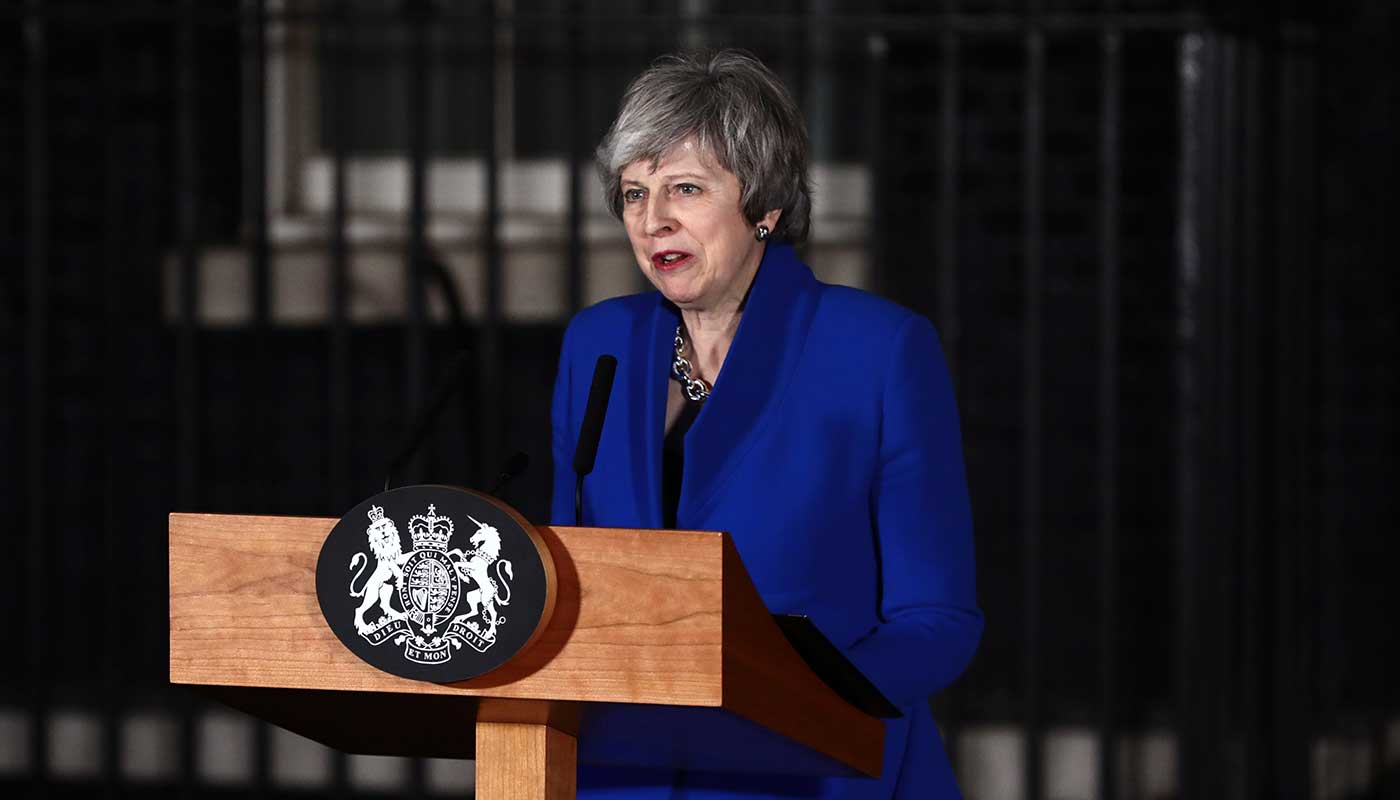Theresa May survives no confidence vote: what next?
Narrow win changes focus of Brexit strategy after PM calls for ideas

A free daily email with the biggest news stories of the day – and the best features from TheWeek.com
You are now subscribed
Your newsletter sign-up was successful
Prime Minister Theresa May has survived a no confidence vote in the House of Commons, eking out a narrow victory, after her planned Brexit deal was soundly rejected by MPs.
The government won the confidence of parliament by 325 votes to 306. However that result still leaves May with no clear way forward for Brexit as the deadline for the UK to leave the EU looms.
Speaking after the dramatic vote, the PM called on the leaders of other parties to come forward with their ideas on how to move forward.
The Week
Escape your echo chamber. Get the facts behind the news, plus analysis from multiple perspectives.

Sign up for The Week's Free Newsletters
From our morning news briefing to a weekly Good News Newsletter, get the best of The Week delivered directly to your inbox.
From our morning news briefing to a weekly Good News Newsletter, get the best of The Week delivered directly to your inbox.
“So now MPs have made clear what they don’t want, we must all work constructively together to set out what parliament does want,” May said.
The Guardian reports that she has met with representatives from the Liberal Democrats, the SNP and Plaid Cymru, with plans already made to meet with other groups of MPs later this morning.
Labour leader Jeremy Corbyn has said that “before any ‘positive discussions’ can take place, the prime minister should rule out a no-deal Brexit”, reports the BBC.
A spokesman for Corbyn accused the government of trying to “blackmail” opposition parties to accept a compromise plan “against the threat of a chaotic exit on March 29”, the Financial Times says.
A free daily email with the biggest news stories of the day – and the best features from TheWeek.com
A number of opposition parties agree with Labour’s demand for a “no-deal Brexit” to be taken off the table.
Chancellor Philip Hammond has told business leaders that this could happen within days using a backbench bill, according to an exclusive report from The Daily Telegraph.
He said this could potentially lead to Article 50 being extended, says the newspaper.
“Could we extend the Article 50 deadline to give us more time? The simple answer is that the EU would not consider the request for the extension... unless or until we have a clear plan to go forward,” he is quoted as saying.
“The sequence has to be first to reach out to opinion across the Commons to establish the terms on which we can build a majority for a way forward.”
-
 Local elections 2026: where are they and who is expected to win?
Local elections 2026: where are they and who is expected to win?The Explainer Labour is braced for heavy losses and U-turn on postponing some council elections hasn’t helped the party’s prospects
-
 6 of the world’s most accessible destinations
6 of the world’s most accessible destinationsThe Week Recommends Experience all of Berlin, Singapore and Sydney
-
 How the FCC’s ‘equal time’ rule works
How the FCC’s ‘equal time’ rule worksIn the Spotlight The law is at the heart of the Colbert-CBS conflict
-
 Local elections 2026: where are they and who is expected to win?
Local elections 2026: where are they and who is expected to win?The Explainer Labour is braced for heavy losses and U-turn on postponing some council elections hasn’t helped the party’s prospects
-
 How corrupt is the UK?
How corrupt is the UK?The Explainer Decline in standards ‘risks becoming a defining feature of our political culture’ as Britain falls to lowest ever score on global index
-
 The high street: Britain’s next political battleground?
The high street: Britain’s next political battleground?In the Spotlight Mass closure of shops and influx of organised crime are fuelling voter anger, and offer an opening for Reform UK
-
 Biggest political break-ups and make-ups of 2025
Biggest political break-ups and make-ups of 2025The Explainer From Trump and Musk to the UK and the EU, Christmas wouldn’t be Christmas without a round-up of the year’s relationship drama
-
 ‘The menu’s other highlights smack of the surreal’
‘The menu’s other highlights smack of the surreal’Instant Opinion Opinion, comment and editorials of the day
-
 Is a Reform-Tory pact becoming more likely?
Is a Reform-Tory pact becoming more likely?Today’s Big Question Nigel Farage’s party is ahead in the polls but still falls well short of a Commons majority, while Conservatives are still losing MPs to Reform
-
 The launch of Your Party: how it could work
The launch of Your Party: how it could workThe Explainer Despite landmark decisions made over the party’s makeup at their first conference, core frustrations are ‘likely to only intensify in the near-future’
-
 Taking the low road: why the SNP is still standing strong
Taking the low road: why the SNP is still standing strongTalking Point Party is on track for a fifth consecutive victory in May’s Holyrood election, despite controversies and plummeting support